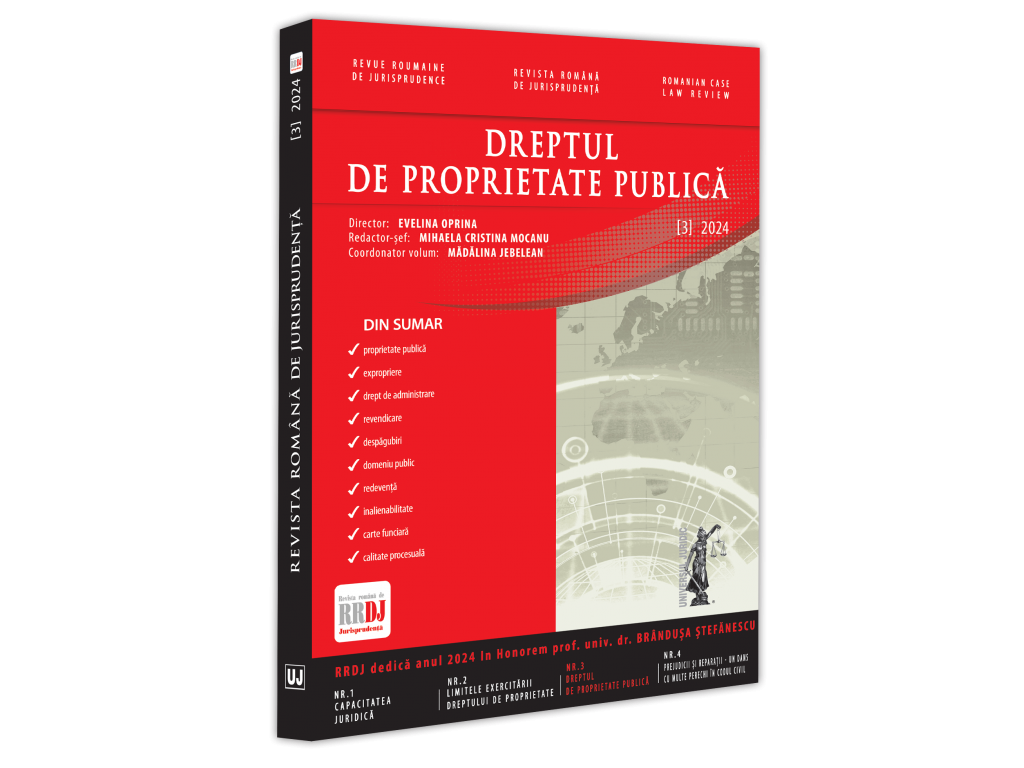12. Exproprierea pentru cauză de utilitate publică – mod de dobândire a proprietăţii publice. Nulitatea absolută parţială a unor contracte de vânzare-cumpărare
autentice. Efectele puterii lucrului judecat
12. Expropriation in the public interest – how to acquire public property. Partial absolute nullity of authentic contracts of sale. The effects of res judicata
Author(s): Carmen Adriana DomocoşSubject(s): Law, Constitution, Jurisprudence, Civil Law
Published by: Universul Juridic
Keywords: absolute nullity; public ownership; principle of availability; public domain; legality of administrative act;
Summary/Abstract: The courts have considered that the sanction of absolute nullity of the authentic contract in question is incident to disregarding the inalienable nature of the property in public ownership, the subjective attitude of the contracting parties having no relevance in this regard. Also, the sanction of absolute nullity lacks legal effects on the authentic sale purchase contract only to the extent that the imperative provisions relative to the defense of public property rights were disregarded. According to the principle of availability, on the one hand, the plaintiff is the one who indicates the object of the action, the judge being obliged to rule only within the limits of what was requested, without being able to grant more or what was not requested, and on the other hand, in the appeal no the procedural framework or the object of the summons can be changed. The active role of the judge must be understood in the context of ensuring a balance with the principle of availability that governs the civil process. Lands that are part of the public domain are inalienable, inalienable and imprescriptible. They cannot be introduced into the civil circuit unless, according to the law, they are decommissioned from the public domain. The plea of illegality appears to be transformed into a common defence, so that it can be invoked for the first time at any time, including on appeal. The Court held that the verification of the legality of the disputed administrative act through the exception of illegality involves its analysis by reference to the normative acts with superior legal force on the basis of which and in execution of which it was issued, taking into account the principle of hierarchy and legal force of normative acts, established by Art. 1 paragraph 5 of the Constitution and art. 4 para. 3 of Law no. 24/2000 on legislative technical norms for the elaboration of normative acts. Taking into account the actual destination and use of the property in dispute, namely the property intended for military instruction and the activities of the Ministry of National Defense, the courts have judged that it belongs to the public domain of the state, by the declaration of the law, so that the inclusion of the property in the Inventory of goods belonging to the public domain of the state it is legal.
Journal: Revista Română de Jurisprudenţă
- Issue Year: 2024
- Issue No: 03
- Page Range: 131-147
- Page Count: 17
- Language: Romanian
- Content File-PDF

